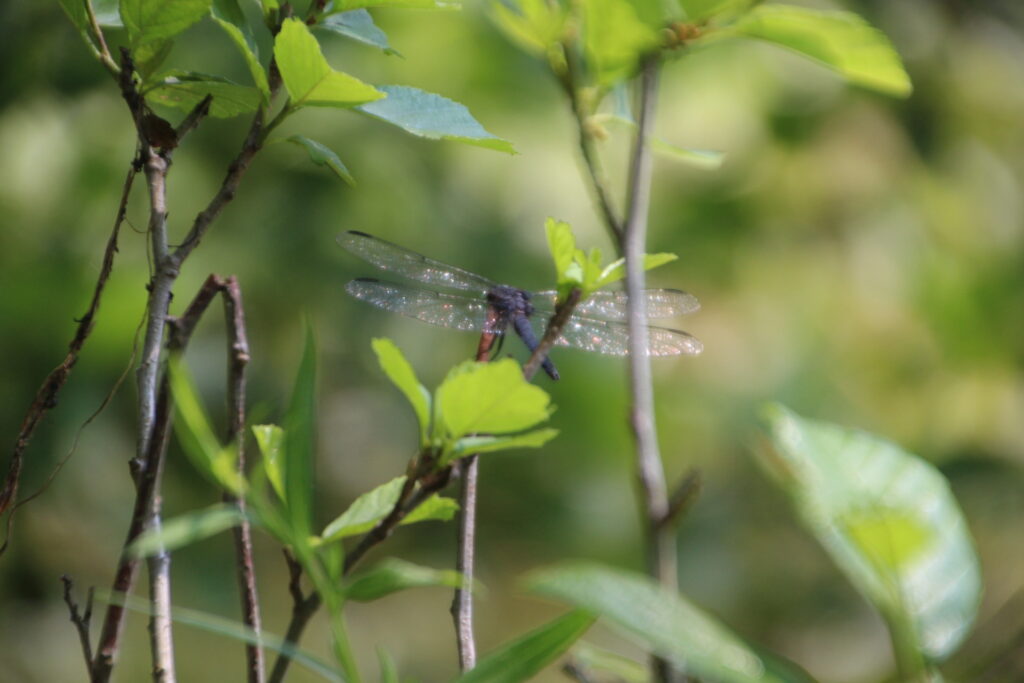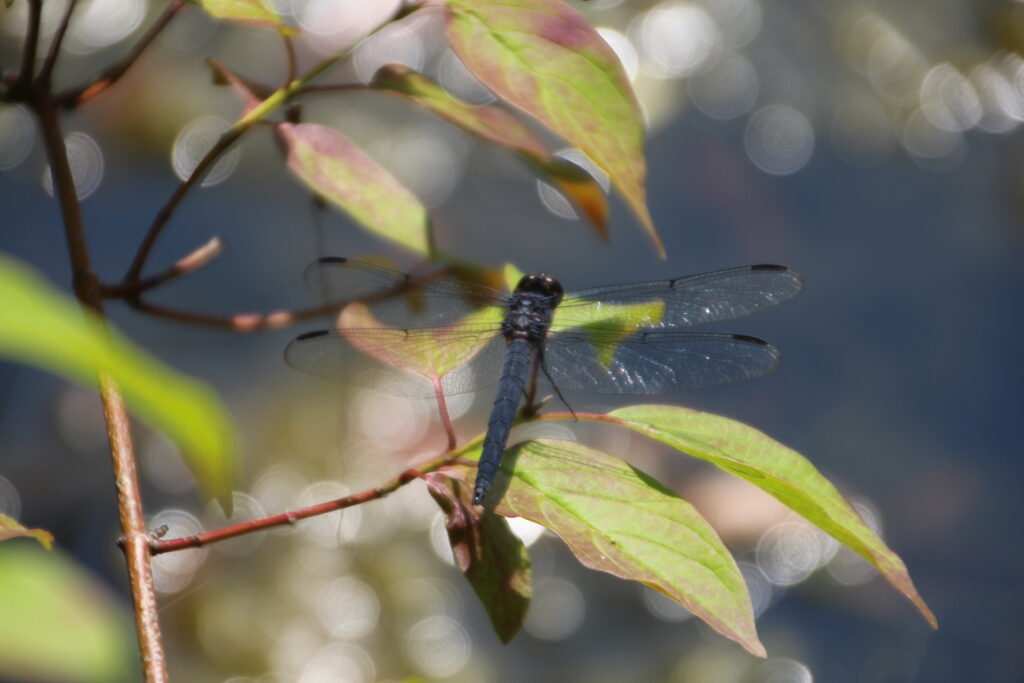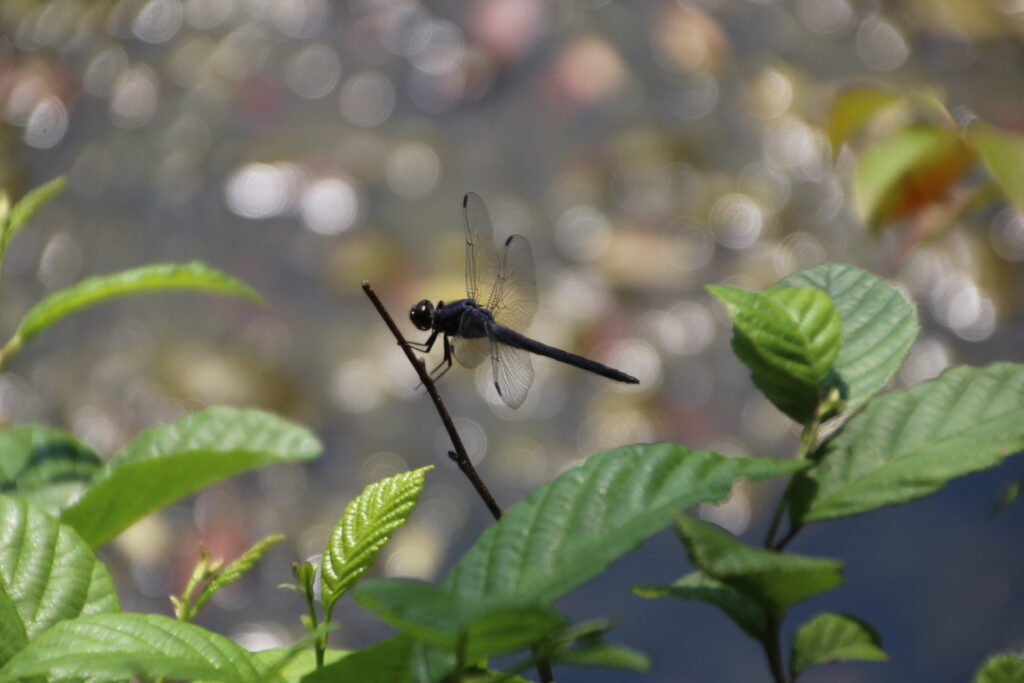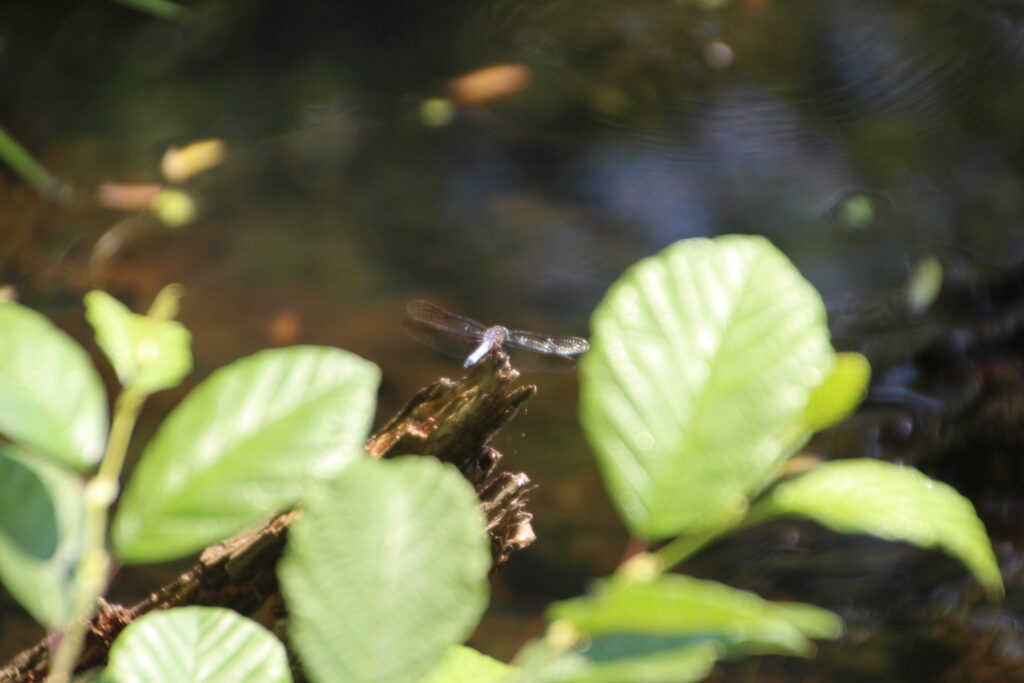Monday July 5th at 2:30. 88° F, partly cloudy, and somewhat humid.
Though it hadn’t rained since my last visit to the site, the ground was just as – if not more – muddy. The bright yellow blossoms of the Earth loosestrife I had seen last time are now wilting and faded in saturation. The buds on the “Golden Bug” tree have not changed in the past few days but less bugs surrounded its buds and flowers. As I was walking to my site, I saw bright green algae on the surface of the north eastern end of Lake Surprise. Upon arriving at my site (at about the midpoint of the lake on the south eastern side), I was surprised to see the same algae was not present in the middle of the lake or near the site at all. Also, the moss-like algae that was present on my first visit to the site was no longer on the surface of the lake as it had been previously. The area is still rich with dragonflies and many flit from low branches to plants and seem to bounce off the surface of the lake.
Why are most of the trees bowed over the lake on the southern side?
The site is on the north west facing side of the lake. Here, most of the trees are bowed towards the lake, if not bent at a 90 degree angle over the lake. The trees on the opposite side of the lake do not share the same curve towards the water that the trees at the site have. This could likely be due to multiple external stimuli such as the sun and water. The trees may be exhibiting hydrotropism or phototropism. The roots of trees may be exhibiting positive hydrotropism that makes the roots grow towards a source of water, which would be Lake Surprise (Dietrich, 2018). Though hydrotropism is usually only observed in roots, the trunks of trees may be mirroring the growth pattern of the roots. Another reason they may be bent towards the lake is a positive phototropism response. The trees may be growing this direction because the coverage of trees in the south eastern laying forest may block out sunlight from the growing trees. Over the lake, there is an obvious lack of tree coverage, allowing more light in. Ultimately, this positive phototropism may be the reason for such bowed pattern of tree growth.
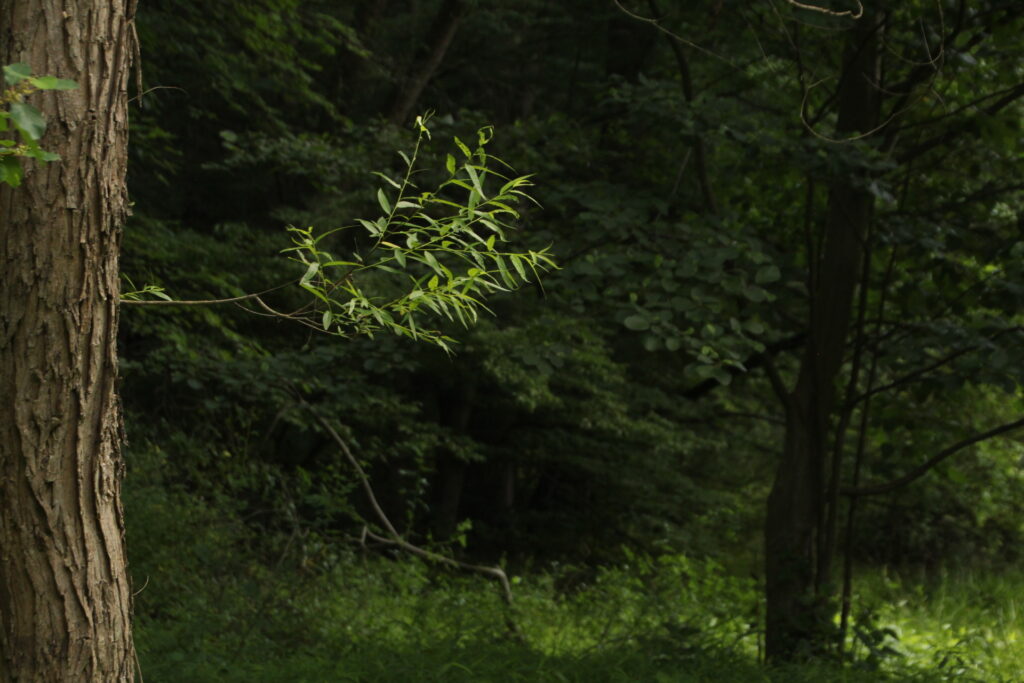
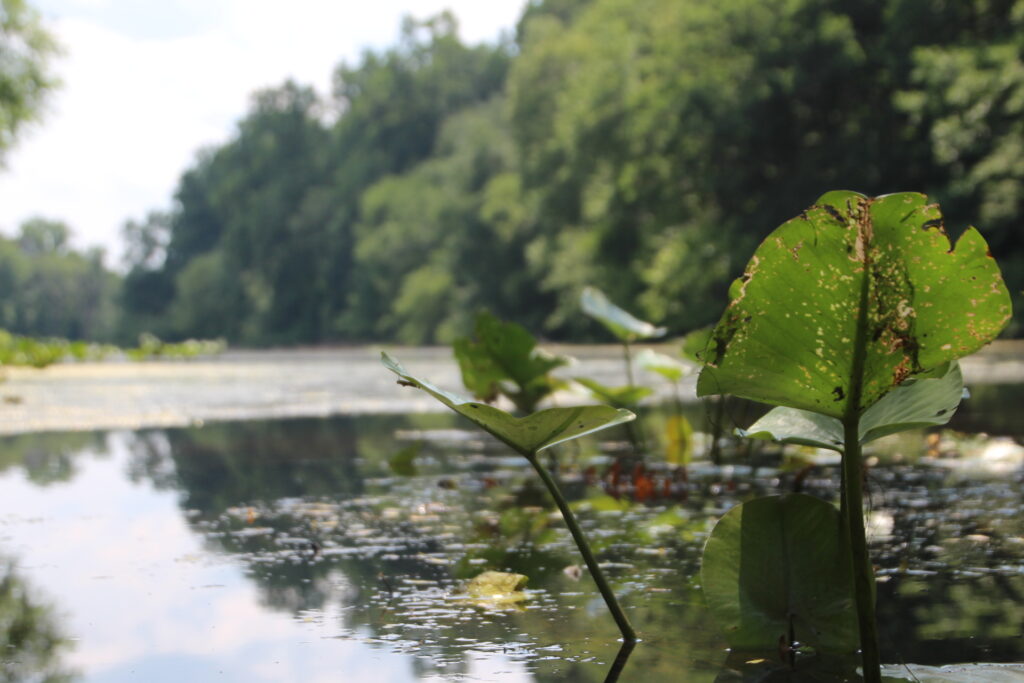
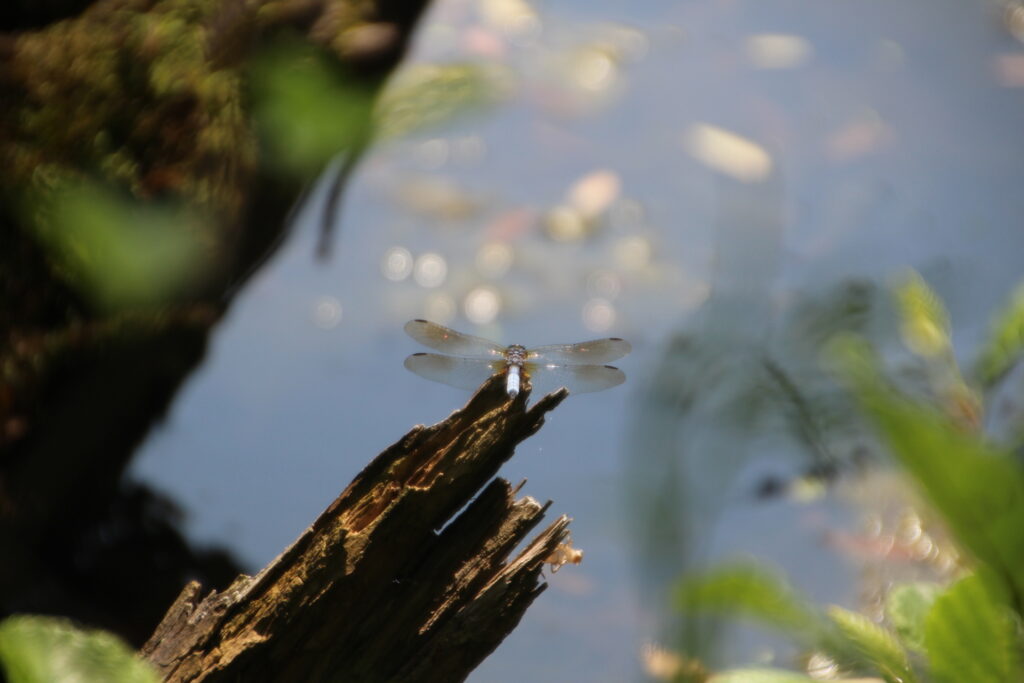
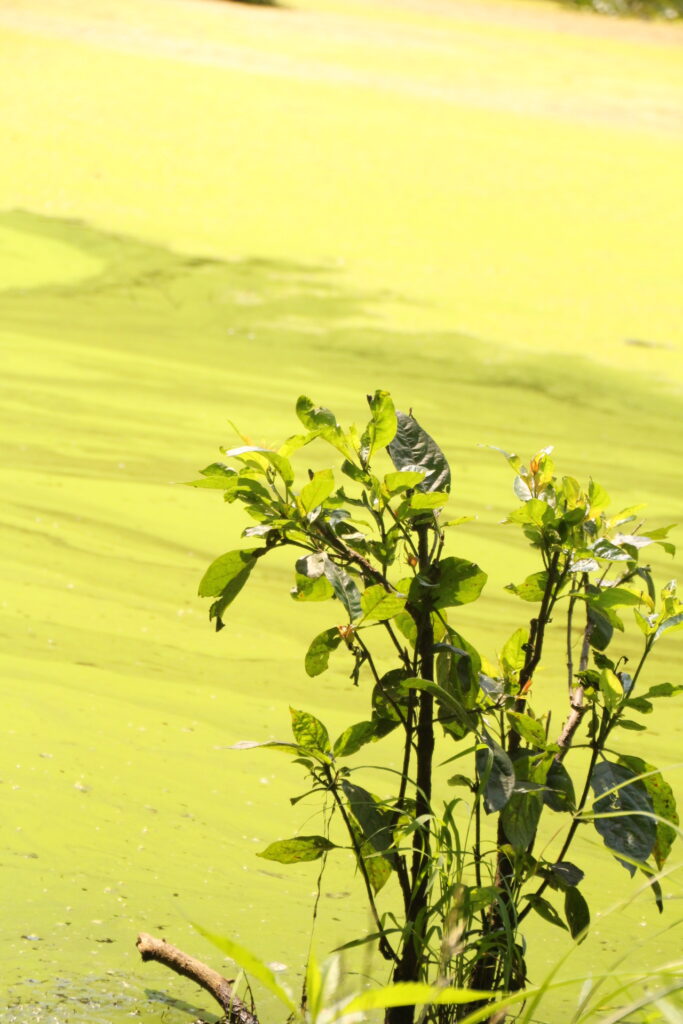
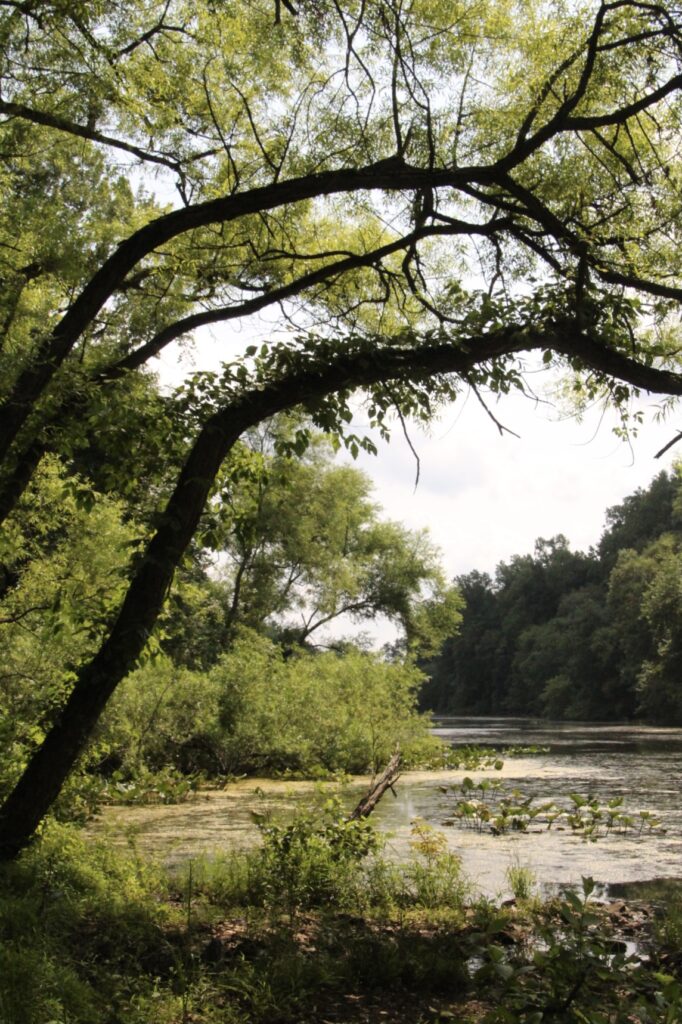
At the site, I noticed more animals than I had previously encountered. I could not identify a single one but as I trudged through underbrush, I heard what must have been some small rodent species running underfoot as I approached. I also heard frog croaks in the Arrowheads but could not find any. They may have been under the mud. Photographing my site did not change my perspective of my site at all but it did offer more insight into what other species may be present. Similar to sketching, photographing nature can take time. One could just point their camera and shoot and be done with it, but patience and care brings better subjects to the foreground. I sat for at least 10 minutes with my camera trained on some branches right at the shore of the lake waiting for dragonflies to land on them so I could get some shots of them. Photographing my site was exciting since it is a dream career of mine and I am looking forward to returning. I may try to go early in the morning to see what different species are present.
More dragonfly pictures because I took so many and I love them:
